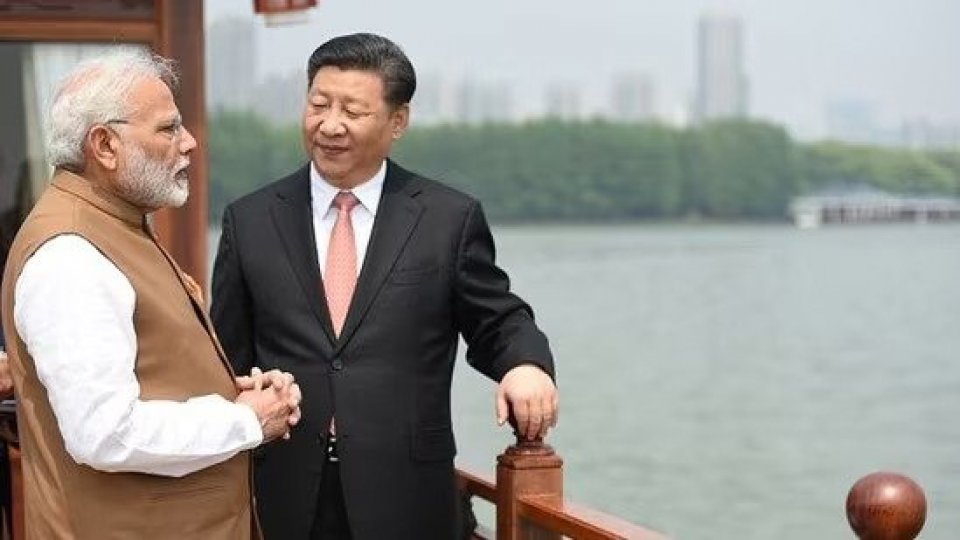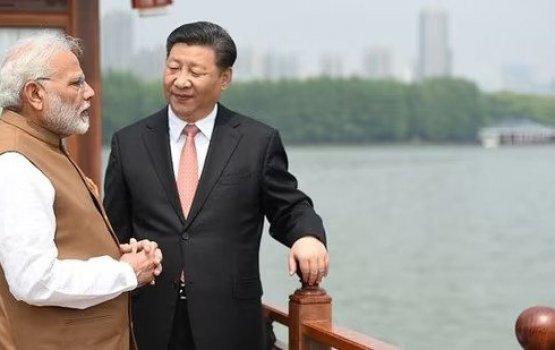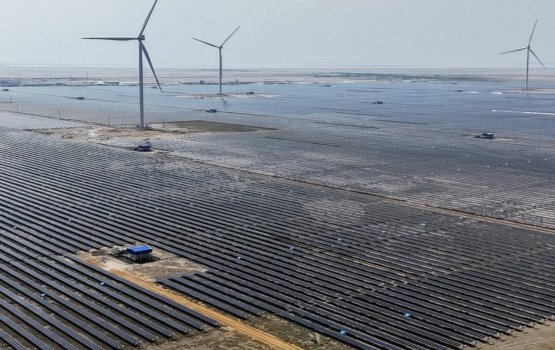The relationship between India and China has historically been strained, with tensions often flaring, especially following the violent clashes in Galwan Valley in June 2020. However, recent developments, particularly in light of Donald Trump's tariffs, appear to have prompted a shift in Beijing’s approach towards New Delhi.
Trump's tariffs on China, which have now escalated to an eye-popping 125% following Beijing's retaliation with a 34% levy, have ignited a new round of trade conflict between the two global economic giants. In response, China has vowed to counter "American aggression" at all costs, recently imposing an additional 50% tariff on US imports, making them 84% more expensive.
Amid this trade war, Trump's tariffs seem to have inadvertently led to a change in tone from China. On Tuesday, the Chinese Embassy in New Delhi issued a statement calling for greater cooperation between India and China. The embassy's spokesperson, Yu Jing, took to X to assert that the China-India economic relationship is built on mutual benefits and emphasized the need for the two nations, as the largest developing countries in their region, to unite against what she described as the US’s abuse of tariffs. She also noted the importance of cooperation in defending the multilateral trade system.
"China-India economic and trade relations are based on mutual benefits. In the face of the US’s tariff policies, which undermine the right to development for countries, particularly in the Global South, the largest developing countries must stand together," Yu Jing said on X. She also highlighted China's role in global economic growth, contributing about 30% annually.
Despite the Chinese Embassy’s comments, India has yet to officially respond. However, External Affairs Minister S. Jaishankar recently indicated that India-China relations are moving in a "positive direction."
This shift in Beijing's stance is notable, especially considering that it was triggered by the escalating trade tensions with the US. On April 1, Chinese President Xi Jinping echoed the sentiment, telling President Droupadi Murmu in Beijing that India and China should collaborate more closely. These high-level calls for cooperation underscore the significance of the relationship between the two countries, even though they have historically been competitors and sometimes adversaries.
Trump’s Tariffs on India: A Different StoryWhile India is not facing tariffs as severe as those imposed on China, the situation remains challenging. Trump has consistently criticized India for its high tariffs, calling the country a "very big abuser of tariffs." However, the more amicable relationship between Trump and Prime Minister Narendra Modi has prevented harsher penalties. Instead, Trump announced “discounted” tariffs for India, set at 26% (on top of the 10% tariff on certain goods like steel).
India's exports to the US were valued at $89.91 billion in 2024, but this year, certain sectors, including seafood, vehicles, and auto parts, will face significant challenges due to new tariffs. However, unlike China, India has refrained from retaliating with its own tariffs, despite analysts predicting a potential $5.76 billion drop in exports to the US.
The Post-Galwan Relationship: A Slow ThawSince the violent confrontation in Galwan Valley, relations between India and China have been in a precarious state, with both countries amassing military forces along their shared border. It wasn’t until October 2024 that a patrol agreement was negotiated, which helped ease some of the tensions. Following this, a meeting between Prime Minister Modi and President Xi Jinping seemed to signal a thaw in the relationship, extending even to economic cooperation, though Trump's tariffs played a role in driving this shift.
In March 2025, China’s Foreign Minister reiterated the importance of India-China cooperation, urging both countries to “oppose hegemonism and power politics.” He emphasized that cooperation between the two nations should not be undermined by their border disputes, a sentiment echoed by President Xi in his meeting with President Murmu.
As both nations navigate a complex and often volatile relationship, there appears to be growing recognition from both sides that collaboration may be key to overcoming the challenges presented by the current global economic landscape.
(Reported by: NDTV)







